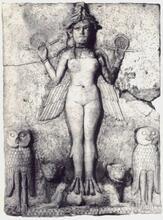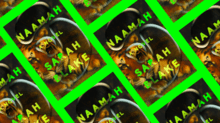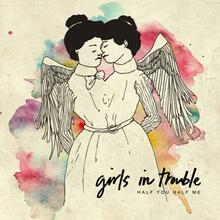Naamah: Midrash and Aggadah
The Rabbis have differing views on Noah’s wife Naamah, portraying her as both very beautiful and also as a malevolent seductress. The negative interpretation of Naamah is seen in the later midrash and the Zohar, which describe her as a seducer of men and even of demons.
Article
According to the Rabbis, Naamah was Noah’s wife; as her name indicates, her actions were pleasing (ne’imim—Gen. Rabbah 23:3). According to another view, however, she acted improperly, for she beat on a drum and drew people to engage in idolatry, and her musical activity increased corruption among people. This tradition is apparently connected with a different interpretation of the name Naamah, from ne’imah (melody and song) (Targum Pseudo-Jonathan on Gen. 4:22).
The A type of non-halakhic literary activitiy of the Rabbis for interpreting non-legal material according to special principles of interpretation (hermeneutical rules).midrash (Midrash ha-Gadol, Gen. Rabbah 4:22) relates that Naamah was the most beautiful woman in the world, so much so that she caused the ministering angels to fall prey to her loveliness for they thought she was one of them. As it is said (Gen. 6:2): “The sons of God saw how beautiful the daughters of men were.” The late Midrash and the Zohar developed the figure of Naamah as a seducer of men and even of demons. Naamah was the wife of Shamadon and the union with this fiend produced Asmodeus (Ashmedai), the king of the demons. It is also related that Naamah and Lilith harm infants and abuse people in their sleep (Zohar, Bereshit 4:7).










